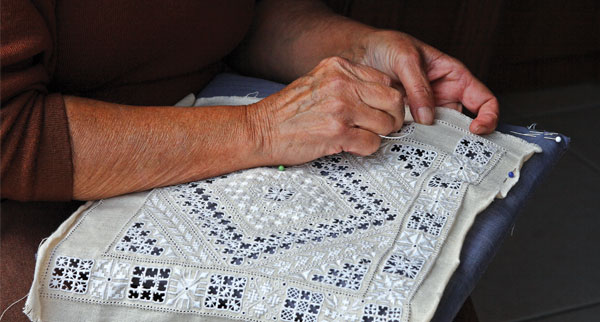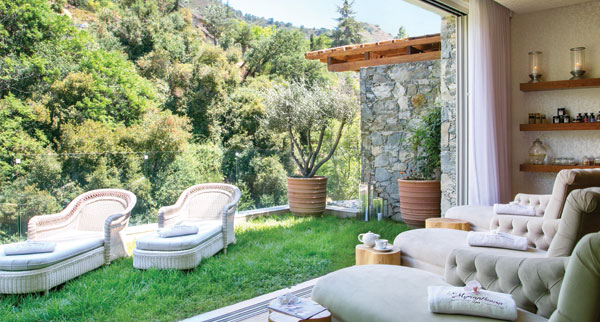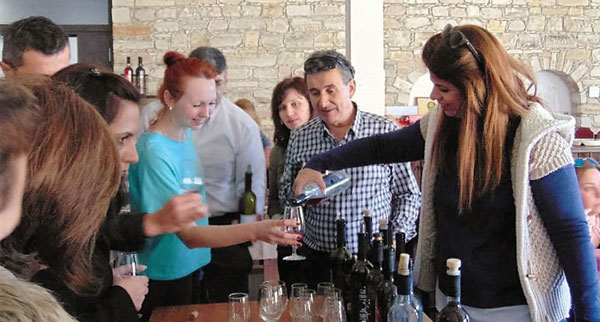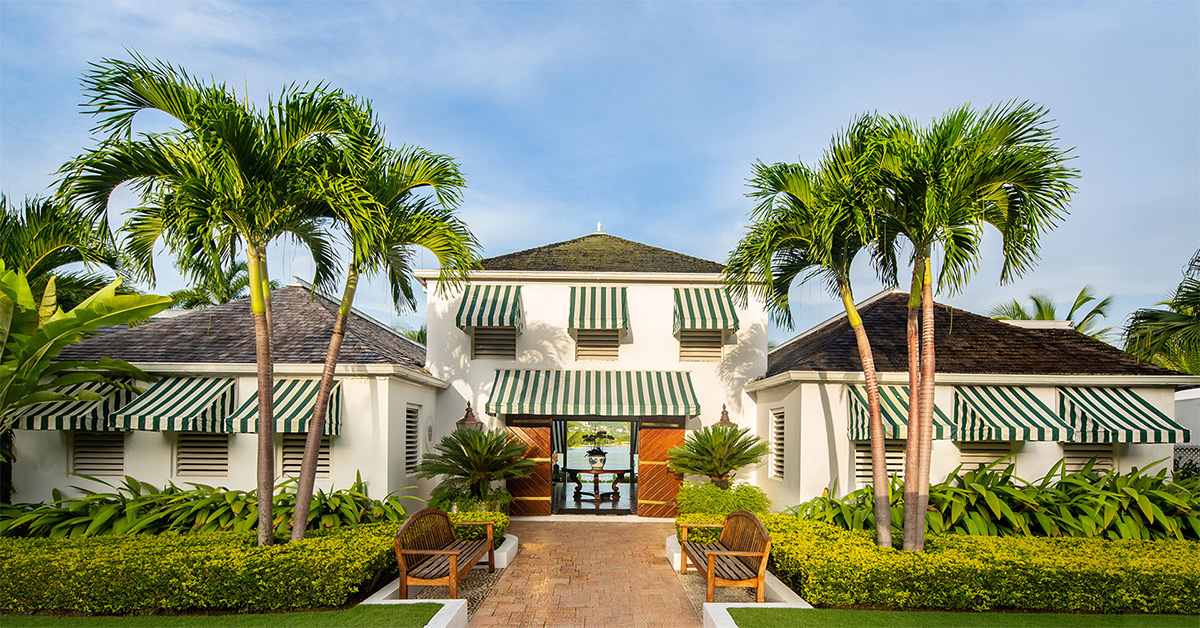Pictures: Romoskotisonis / Larnaka Tourism Board
For those on the hunt for an authentic local experience, Cyprus is a positive feast, writes Laura French.
Like this and want more details? Click here to download and save as a PDF.
Like a well-prepared mezze, Cyprus excels in variety. And just as it would be disastrous to forget the halloumi and sheftalia on an authentic Cypriot spread, so it would be sacrilege to neglect the country’s more traditional side – its local villages, culinary heritage and handicraft history.
Those aspects are being injected with new life, according to Orestis Rossides, UK director of the Cyprus Tourism Office, which means that when it comes to selling a trip that goes beyond the fly-and-flop beach holiday, there’s no time like the present.
“Young people and couples are returning to the villages for a better quality of life,” he says. “Old houses are being restored and turned into guesthouses, and many villages have established youth associations and committees, resulting in a series of events and festivals.”
That’s opening up new opportunities for visitors wanting to get under the skin of the country, meet local people and witness the likes of lace-making, bread-baking, wine-tasting, pottery-turning and plenty more – all while helping you sell the shoulder seasons with activities that can be done come rain or shine.

Getting crafty
With its historic architecture, proximity to picturesque villages and pottery heritage, Larnaca makes an excellent start for visitors on a cultural quest.
“It’s an incredible place to try local activities all original to the region,” says Chelsea Saunders, product and commercial executive at Monarch.
For the best insights, suggest heading there in winter, when the Larnaca Tourism Board hosts its annual programme of free cultural excursions, open to anyone staying at a hotel in the city. Activities include basket weaving at Voroklini Lake and tours to local villages such as Lefkara, known internationally for its lace embroidery, which dates back more than 600 years. Today, local women continue to produce elegant lace items, which visitors can browse and buy from quaint boutiques dotted along the cobbled alleyways.
Beyond Larnaca, Olympic Holidays recommends the Avgoustinos Pottery Centre in the coastal town of Geroskipou, east of Paphos, for private sessions at the wheel (from €50), alongside group kids’ lessons with English-speaking guides (from €10) in July and August.
Or, for a taste of the island’s iconic basket weaving heritage, suggest the small Inia Village Basket Weaving Museum near Paphos, or make a beeline for Livadia. At the latter, craftsmen draw on techniques used in the 19th century, splitting reeds to create baskets and straw mats – a tradition now recognised by Unesco as an intangible cultural heritage.

Mountain villages
For an even more local village experience, look to the Troodos Mountains, where quaint old settlements offer traditional, slow-paced tavernas and sweet Cypriot delicacies served up among dramatic, pine tree covered slopes.
Do Something Different offers a Troodos 4×4 safari from Ayia Napa, Larnaca and Protaras, taking guests on an off-road adventure through the villages, where they’ll see ancient stone architecture, visit a ‘kafeneion’ for local coffee, and wander along forest trails towards a towering mountain waterfall (from £64 including a traditional lunch).
For those less keen on doing it by foot, Tui Collection – the excursion programme from the mainstream operator – runs a Troodos Kykkos Select coach trip up to the mountains from Paphos. Clients wind their way up the stunning landscapes before reaching the remote village of Treis Elies, home to a population of just 57. They’ll also stop off at the colourful Kykkos Monastery, known for its elaborate gold decor and lavish mosaics, before tasting herbal teas and watching a pottery demonstration in the small, friendly village of Foini.
If clients are looking to linger in the area, recommend a stay at Casale Panayiotis. This luxury resort, set on the slopes in the ancient spa village of Kalopanayiotis, was created by civil engineering magnate John Papadouris to revive the area – and so far it has succeeded.
“The jobs created by tourism have attracted young families back to the village,” says Alison Hall, Inntravel’s regional expert on Cyprus. “Staying here you get a real sense of how villages in the Troodos used to be.”
The property offers various local experiences, from a four day farm to fork package featuring orchard tours, cooking classes and food tastings (from €170) to fishing trips, guided walks and wine-tasting sessions with the pros. It has recently been added by Classic Collection Holidays and Planet Holidays.

Wine and dine
It’s not only there that visitors can sample Cyprus’s indulgent wine and food. The island was the first in the Mediterranean to produce the ‘nectar of the Gods’, and aficionados can sate their appetites on one of its wine routes, especially in the west.
Among them is the Commandaria trail, which meanders through 14 villages where the age-old dessert wine – dating back to 1192 – holds sway. Back in the Troodos Mountains, Omodos is the regional centre for six wine-producing villages and is worth a stop-off with its verdant vineyard surroundings. It’s also known for treats such as almond marzipan, carob – a rich, healthy alternative to chocolate – and arkatena, a type of bread made with chickpeas and shaped into a giant ring. TravelCube stops here on its Best of Cyprus day trip, combining it with a stop at Skarinou, home to traditional stone houses, ancient crafts and a waxwork museum (from £52).
As all of this suggests, foodies certainly won’t be short-changed in the area. Olive mills, honey farms and cheese-makers are found throughout the island, and monthly village markets offer guests a chance to pick up fresh, local produce.
For a truly authentic experience, try the bread making workshop run by Mrs Sophia in the tiny hillside village of Letymbou, 20 minutes from Paphos. Guests will be welcomed into her house, with its traditional lacework and decor, to take part in interactive halloumi-making and olive bread baking in the outdoor oven – think tempting aromas of freshly baked dough and the type of hospitality you’d get from a long lost aunt.
If that gets your clients excited, then the menu of foodie festivals taking over Cyprus in the summer and autumn months likely will too. Among them is the Bread and Cheese festival, hitting the streets of Athienou on October 12 with music and dance performances alongside plenty of baking.
The month-long Grape Feast, meanwhile, will see a flurry of wine-related events light up the villages of Vasa Koilaniou, Lofou, Arsos and Koilani from September to October. Visitors have the chance to taste local wines, try various grape delicacies and watch local goodies such as ‘palouzes’ (thick, jelly-like sweets) being made against a backdrop of buzzing entertainment – ample proof there’s life beyond the beach.
Ask the expert
Noel Josephides, managing director, Sunvil
“In the late 1980s, villagers began renovating their houses to accommodate the more enlightened tourist. It is now fashionable for Cypriot city dwellers to return to their village roots and restore traditional culture. Once-dying industries, such as lace-making, pottery, boutique wineries, cheese production, traditional bread baking, carob and olive harvesting, can be observed and in many instances shared with the visitor. To ignore this renaissance of Cypriot culture and fail to visit the interior is to miss 90% of what the island has to offer.”
Sample product
Classic Collection Holidays offers a week’s B&B at Casale Panayiotis in Kalopanayiotis from £1,044 in June. The price is based on two sharing a suite and includes flights and transfers.
classic-collection.co.uk
Travel 2 offers seven nights’ all-inclusive at the five-star Olympic Lagoon Resort Paphos, with flights from London and private transfers, from £1,199, departing on October 25.
travel2.com




